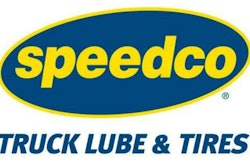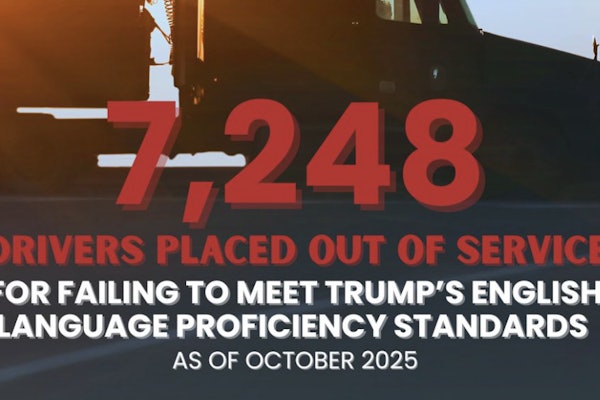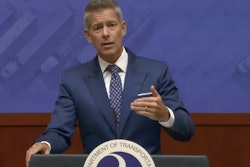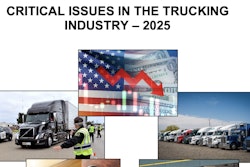A national trucking safety organization is calling for, among other things, the expansion of mandated electronic logging devices in 2019. Requiring the installation of ELDs “in all large trucks, regardless of commodity, length of haul or whether they operate in interstate or intrastate commerce” is one of the 2019 priorities of the Trucking Alliance, a safety-oriented coalition of some of the largest carriers in the country.
 Steve Williams, president of the Trucking Alliance’s board of directors and chairman and CEO of Maverick USA. (Trucking Alliance photo)
Steve Williams, president of the Trucking Alliance’s board of directors and chairman and CEO of Maverick USA. (Trucking Alliance photo)Steve Williams, president of the alliance’s board of directors and chairman and CEO of Maverick USA, released a statement Wednesday outlining the Trucking Alliance‘s goals for 2019.
Williams said they include:
- Reverse priorities: “A first step is to reverse our priorities. Support progressive safety reforms that make sense for our country and citizens first, our industry second, and our companies third. Second, safety groups, legislators, regulators and all segments of our diverse industry should leave their respective corners, meet in the middle, and responsibly deal with the unprecedented challenges we face.”
- Expand the use of ELDs: “In the year since the ELD Law finally took effect, the devices are already improving a truck driver’s work environment. ELDs are making the supply chain more efficient. Most importantly, ELDs can help reverse the disturbing trend of large truck fatalities and save lives. In fact, ELDs should be required in all large trucks, regardless of commodity, length of haul or whether they operate in interstate or intrastate commerce. Anything short of mandatory use of ELDs is purely political, unfair and frankly, unsafe.”
- Improve drug testing: “… the Department of Transportation’s only required drug test for truck driver applicants is actually missing as many as nine of every 10 lifestyle drug users. We should utilize drug tests that verify an applicant has been drug-free for at least 60 days. And we need a long-awaited database to identify who has previously failed these drug tests. We must be able to assure the motoring public that our commercial drivers are properly rested, properly trained and drug and alcohol-free.”
- Limit truck speeds: “Excessive truck speeds increase fatalities and the severity of injuries in large truck accidents. That’s why we must require large trucks to maintain reasonable speeds on all highways.”
- Adopt truck safety technologies: “Forward collision warning systems are available on new trucks now. These systems can assist our drivers to avoid accidents, which is especially critical since distracted driving is so prevalent among the motoring public.”
- Compensate truck accident victims: “In 1980, Congress rightfully decided that a “commercial” motor carrier has a moral and ethical responsibility to compensate the victims of large truck crashes. Congress set the minimum motor carrier insurance limits almost 40 years ago. But those insurance limits remain the same today and they should be dramatically increased.”
“The U.S. trucking industry is indispensable to our economy and the standard of living we enjoy as Americans,” said Williams. “Yet, tragically, our industry has too many large truck crashes; accidents that in the last reportable year, killed 4,761 people and injured another 145,000 on our roadways. Tragically, the number of truck drivers who lost their lives was the highest in 10 years.
Williams added, “Owning a trucking company or driving a piece of equipment for a living is not an entitlement. It is a privilege. With privileges come responsibilities. What we do is important. But how we do it is much more important. No longer should anybody defend the actions of those who don’t deserve to be on the road.
“That’s why it should be difficult for people to get into this industry. It will be increasingly hard to stay in this industry, as it should be. In so doing, we will have much safer highways for all and an economic opportunity to build a safe and efficient supply chain for the future.”
Williams’ statement concluded, “Let’s stop reminiscing about the way things used to be in trucking. Because, frankly, it hasn’t always been good. We have an opportunity to create a new paradigm. We must continue to build sustainable companies that can safely serve our nation. By embracing the changes that are required of all of us … we will finally get the chance to properly compensate, respect and defend the work ethic of the American truck driver.”








